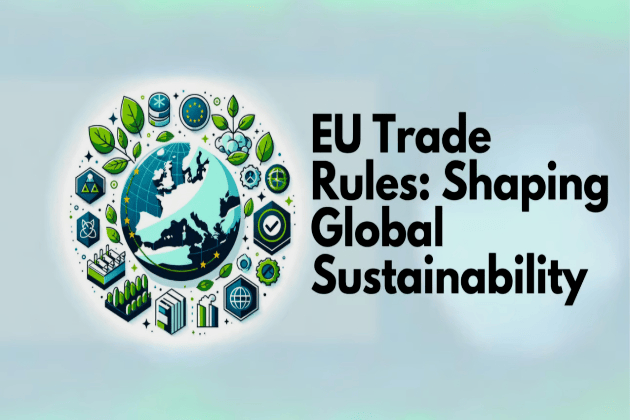Wandile Sihlobo: A record year for SA's agricultural exports
News24
12 Feb 2019, 20:07 GMT+10

Recently released data on SA's agricultural trade for December 2018 paint a clear picture that is worth highlighting of the full year's agricultural trade performance.
In 2018, South Africa's agricultural exports grew by 7% y/y to US$10.6bn, a record level in a dataset starting from 2001.
This was underpinned by increased exports of oranges, grapes, wine, maize, apples, wool, lemons, mandarins and pears, amongst other products.
Over the same period, imports increased marginally to US$6.7bn.
The key imported products were rice, wheat, offal, palm oil, whiskey, live cattle and oilcakes for animal feed. But overall, this subsequently led to a 21% y/y increase in South Africa's agricultural trade balance to a record US$3.9bn.
Subscribe to Fin24's newsletter here
From a destination point of view, the African continent and Europe continued to be the largest markets for South Africa's agricultural exports, collectively absorbing 66% of total exports in 2018, measured in value terms.
Africa, the largest market
In more detail, Africa remained South Africa's largest market, accounting for 39% of agricultural exports.
The leading products to these markets were beverages, fruit, vegetables, wool, sugar and grains.
Asia is also an important market for South Africa's agricultural exports, demanding a 25% export share in 2018. Wool, fruit, grains, beverages, vegetables and meat were the leading products exported to this particular region.
The Americas and the rest of the world accounted for 5% and 4% shares. Exports to these regions were also dominated by fruits, beverages, vegetables, tea, sugar and grains.
Imports
One key thing to note is that South Africa has an import substitution objective through its Industrial Policy Action Plan, but the substitution of some of the key imported agricultural products is unlikely in the foreseeable future, as South Africa does not have favourable agroecological conditions, specifically for the production of palm oil and rice.
About 23% of the overall 2018 agricultural imports were rice, wheat, offal, and palm oil. In the case of wheat and offal imports, there could be a decline in the coming years if the domestic revitalisation process of these subsectors succeeds.
READ: The 7 factors that will shape SA's economy in 2030
The most recent data from International Grains Council (IGC) suggest that South Africa's 2019 rice imports could amount to 1.1m tonnes, up by 10% from 2018.
This is according to data from the IGC. But the import value might not be higher than in 2018 due to comparatively lower rice prices on the back of a large global harvest of 491m tonnes in the 2018/19 production season.
In terms of palm oil, South Africa's imports increased by 5% per annum over the past 17 years to a record 472 874 tonnes in 2018. Throughout this period, the leading suppliers were Indonesia and Malaysia. The trend is unlikely to change this year due to growing domestic demand. My back-of-the-envelope calculations suggest that South Africa's palm oil imports for 2019 could reach 477 603 tonnes.
This year's prospects
Looking ahead, however, South Africa's agricultural trade prospects for 2019 are not as positive as for 2018, as unfavourable weather conditions in parts of the country could lead to lower production, particularly in grains.
The current ban on the exports of beef is another factor that could lead to reduced exports in 2019. The subsectors that could still show solid export performance this year are horticulture and wine. Be that as it may, I still believe that there will be positive trade balance for South Africa's agriculture in 2019.
Let me end off with a positive note on this subject that came out of the 2019 State of the Nation Address by President Cyril Ramaphosa, when he signalled that potential expansion in agricultural production in South Africa would mainly be on export-oriented products.
There is already a clear pathway for this initiative as South Africa is currently well-positioned in terms of export markets as illustrated by the trade trends above, and there is clarity about products that show a growing demand in the world market.
Wandile Sihlobo, an agricultural economist, is head of research at the Agricultural Business Chamber of South Africa (Agbiz). Follow him: @WandileSihlobo
 Share
Share
 Tweet
Tweet
 Share
Share
 Flip
Flip
 Email
Email
Watch latest videos
Subscribe and Follow
Get a daily dose of Scandinavia Times news through our daily email, its complimentary and keeps you fully up to date with world and business news as well.
News RELEASES
Publish news of your business, community or sports group, personnel appointments, major event and more by submitting a news release to Scandinavia Times.
More InformationEurope
SectionDublin ranked 2nd most expensive for apartment construction in Europe
DUBLIN, Ireland: Dublin has been ranked as the second most expensive city for apartment construction among ten major European locations,...
Major European summit planned in Ireland next year
DUBLIN, Ireland: Ireland is positioning itself to host a high-profile gathering of European leaders next year, with Tanaiste Simon...
EC to ease sustainability rules to boost business competitiveness
BRUSSELS/LONDON: The European Commission is preparing to ease sustainability reporting requirements for businesses as part of a broader...
Ireland’s average rents went up by 5.7% in 2024, report says
DUBLIN, Ireland: Ireland's rental market continued to tighten in 2024, with average rents rising by 5.7 percent over the year, according...
EU pushes for US gas, renewables to cut Russian Reliance by 2027
BRUSSELS, Belgium: The European Union is ramping up efforts to secure alternative gas supplies and accelerate its shift to renewable...
Ireland supermarket honors 1999 pre-euro voucher
DUBLIN, Ireland: A supermarket in Kildare made headlines after honoring a 5-pound voucher issued in 1999, long before Ireland adopted...
International
SectionPoland to continue covering Ukraine’s Starlink costs, says deputy PM
WARSAW, Poland: Deputy Prime Minister Krzysztof Gawkowski confirmed over the weekend that Poland has been covering the cost of Ukraine's...
Opinion - Israel's government exploited hostages
Israel sustained the West's support for its slaughter in Gaza for 15 months only through an intensive campaign of lies. It invented...
Pentagon to cut 5,400 jobs amid Trump’s federal workforce reduction
WASHINGTON, D.C.: The Pentagon announced this week that it will cut 5,400 jobs as part of President Donald Trump's plan to shrink the...
Newsom urges Congress for $40 Billion to aid LA wildfire recovery
SACRAMENTO, California: California Governor Gavin Newsom is urging Congress to approve nearly US$40 billion in federal assistance to...
USDA scholarship for underserved students from Black colleges on hold
WASHINGTON, D.C.: A U.S. government scholarship program designed to help students from underserved and rural areas attend historically...
US oil tariff may force foreign producers to pay $10 billion annually
WASHINGTON, D.C.: A proposed 10 percent U.S. tariff on oil imports could deal a US$10 billion annual blow to foreign producers, particularly...













